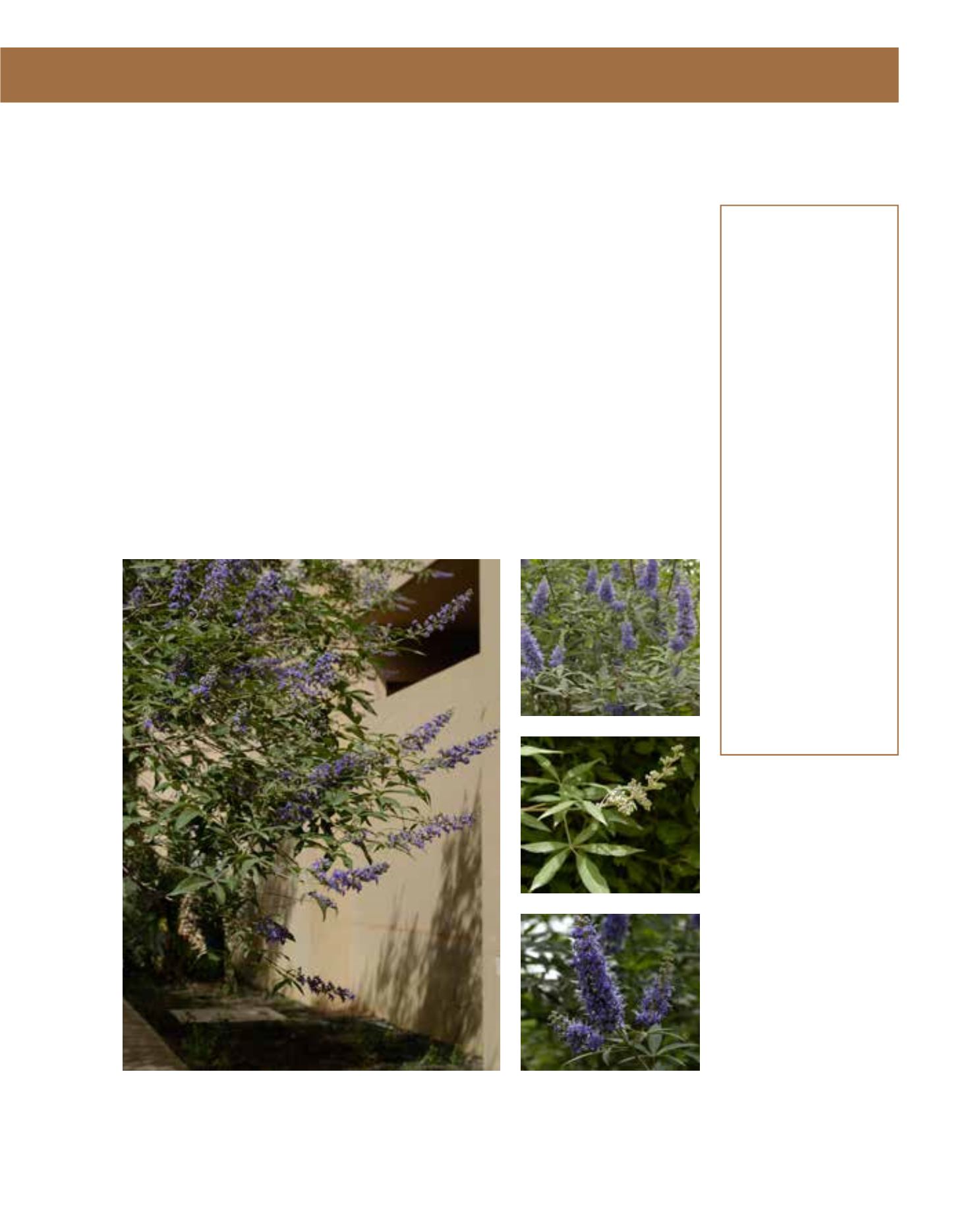

GENERAL
Origin
:
sub-Mediterranean,
Mediterranean,
sub-tropical
Humidity
:
semi-arid, semi-
humid
Propagation :
sowing and
pricking out,
cuttings
Maintenance :
moderate
CONDITIONS
Urban climate :
resistant
Dessication :
resistant
Stagnant water :
vulnerable
Irrigation
:
medium
Salinity/ppm :
moderate (2500
ppm)
Hardiness
:
-21°C
SHAPE
Type
:
shrub
Height
:
1.5 m-7.5 m
Spread
:
2 m-5 m
Foliage
:
deciduous
FLOWER
Colour
:
lilac, light blue
Size
:
30 cm
Period
:
June - November
Smell
:
scented, flower,
sweet
FRUIT
Type of fruit :
berry
Fruit size
:
0.3 cm
Vitex agnus-castus is also called Vitex, Chaste Tree, Chasteberry or Monk’s Pepper. It is native
to the Mediterranean region, but meanwhile it can be found in warm and sub-tropical climates
extending as far as southwest Asia. The shrub or small multi-branched tree grows between 1
and 6 metres high. The leaves are long-stemmed and palmate, but the five leaves are separate.
Flowering is from June to November. The inflorescences are branched and spike-like, with long
stamens. The single fragrant flowers are pale blue-violet, while the fruits are fleshy reddish-black
salal. In former times, Vitex fruits were used as an alternative to pepper. Vitex requires full sun or
partial shade; it loves moist soil and can stand high salinity. It can often be found next to rivers
in the whole area of its distribution. The Vitex can stand light frost. It can very often be seen in
Arriyadh, where it withstands the harsh urban conditions next to King Fahd Road, for example.
It has been successfully planted in many of the Murrabba parks at the King Abdulaziz Histo-
rical Centre, and in Wadi Hanifah. However, it should not be excessively pruned; occasionally
is enough. For landscape design purposes in Arriyadh, it can be recommended as a specimen,
dominant plant, grouped or massed planting, and as a hedge. The bee-attracting plant can be
recommended for parks, public open spaces, street planting, pedestrian precincts, as shelter, for
noise protection and as a screen.
308
Vitex agnus-castus,
Verbenaceae
Chaste Tree,
Monk’s Pepper
















